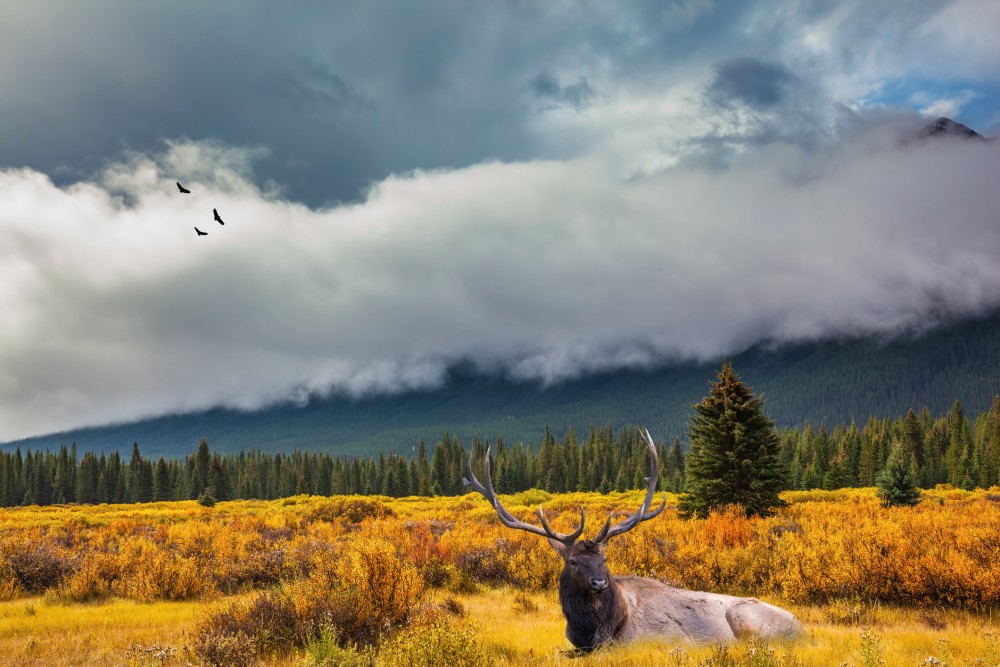EDMONTON – The Government of Alberta should expand provincial parks and implement recovery plans for endangered species as part of its “made-in-Alberta” nature strategy, according to a new report released today by a group of conservation and environmental organizations.
The report, A Collaborative Vision for Alberta’s Nature Strategy, is being released on the eve of the Government of Alberta’s inaugural Nature Summit on October 16. At the summit, diverse groups of stakeholders will be called upon to provide advice on the Government of Alberta’s plans to maintain, conserve, and sustainably manage the province’s nature for years to come.
The coalition of expert groups, including CPAWS Northern Alberta, CPAWS Southern Alberta, Alberta Wilderness Association, Nature Alberta, Alberta Native Plant Council, Edmonton River Valley Conservation Coalition, ShagowAskee, Healthy YEG, and the Pembina Institute are urging the government to adopt six key pathways to protect nature in Alberta:
- Comprehensive land use planning
- Expanded network of parks and protected areas
- Indigenous-led conservation
- Habitat conservation and restoration
- Sustainable economic opportunities
- Nature-based climate solutions
Over the last two years, the Government of Alberta has added approximately 0.002% of Alberta’s land to the protected area list. This brings the total amount of protected land in Alberta to a modest 15% of the province — which leaves Alberta significantly trailing the 30% protection by 2030 commitment made by nearly 200 countries, and several Canadian provinces and territories. At its core, the Government of Alberta’s nature strategy must address biodiversity loss, ecosystem function, and water security. The six pathways laid out in the report address key threats across diverse landscapes. All pathways must be applied across the landscape to achieve holistic and meaningful outcomes.
The Government of Alberta opened public engagement for a Nature Strategy in late September, and it remains open until November 7. With COP16 (The 2024 Conference of the Parties to the UN Convention on Biological Diversity) approaching, where nations from around the world will discuss how to implement the Global Biodiversity Framework, we eagerly await the Government of Alberta’s own strategy as a localized solution to the global concern of biodiversity loss. We encourage all Albertans to participate in the engagement and remain hopeful that the public’s feedback will be essential to shaping the government’s strategy.
Quotes
“The clock is ticking against the accelerating impacts of biodiversity loss for many of Alberta’s wildlife, watersheds, and ecosystems. Action by government is needed now. Fortunately, there are science-backed solutions to the crisis, including creating more protected areas, and managing unprotected lands to prioritize nature. Countries, sub-national governments, Indigenous governments, and municipalities across the globe are making commitments and implementing actions to address the crisis. The Government of Alberta must release a Nature Strategy that commits to taking meaningful action to protect nature. This, in turn, protects Alberta’s communities and ecosystem services”
Kecia Kerr, Executive Director, CPAWS Northern Alberta
“A made-in Alberta Nature Strategy must be more than words on paper; it must be a strong commitment by our elected officials to not only increase, but improve protections for public lands, waters, and wildlife in Alberta. We can’t afford to just pat ourselves on the back for what we’re already doing, or what’s been done in the past. We need bold, forward-thinking action that supports the sustainability and longevity of our biodiversity and, by extension, Albertan communities, livelihoods, and resources.”
Katie Morrison, Executive Director, CPAWS Southern Alberta
“Alberta’s natural landscapes are, in many places, affected by the legacy of oil and gas development in this province. A robust nature strategy must include measures that will reform the province’s oil and gas liability management system and ensure that companies are held to their clean up obligations, so that Alberta’s natural ecosystems can be allowed to thrive.”
Simon Dyer, Deputy Executive Director at the Pembina Institute
“Biodiversity and ecosystem health are intricately linked to human health, food security, and quality of life, and we are rapidly losing both. To stop the loss of biodiversity in Alberta, we need a nature strategy with strong targets, clear and measurable outcomes and enforceable actions towards protecting and restoring our natural ecosystems. Nature can recover, but only if we work together to revitalize it.”
Ruiping Luo, Conservation Specialist, Alberta Wilderness Association
Media contacts:
Kecia Kerr, Executive Director, CPAWS Northern Alberta
Katie Morrison, Executive Director, CPAWS Southern Alberta
Simon Dyer, Deputy Executive Director, the Pembina Institute
Stephanie Weizenbach, Executive Director, Nature Alberta
Ruiping Luo, Conservation Specialist, Alberta Wilderness Association
Other signatories:
Alberta Native Plant Council
Edmonton River Valley Conservation Coalition
ShagowAskee Foundation
Healthy YEG



